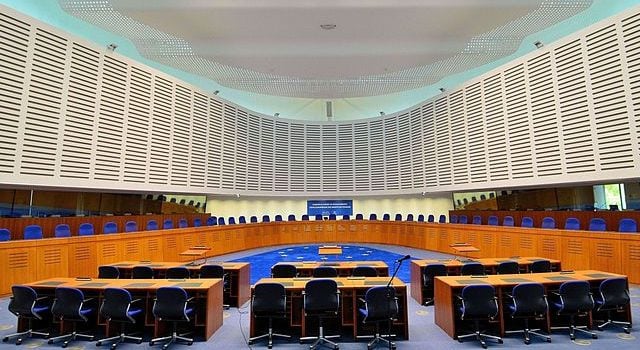The No True Muslim Fallacy
Last week, I received a series of tweets from Adam Deen, founder and director of the Deen Institute.
Now, I know nothing about Mr. Deen. I have no clue where he was born or what his nationality might be. I don’t know if he was raised a Muslim or if he converted to the faith later in life. I don’t know what particular version of Islam he subscribes to or what Islamic sources he considers to be most reliable.
In short, I don’t know Adam Deen from, well, Adam.
I was a bit taken aback, then, when Mr. Deen launched a series of personal accusations against me as though he and I had once been close acquaintances.
“Try actually reading the Qur’an,” he told me, “it might help you understand it.”
Strange. When did I tell him I hadn’t read the Qur’an?
“You are very confused,” he said, insinuating that disbelief in Islam was indicative of a “tainted mind” and that reasons for apostasy were “mostly psychological.” “What it amounts to,” he said regarding people who know Islam then reject it, “is a case of being mistreated by Muslims and having their views warped.”
Mr. Deen went on to demonstrate his full expertise in the field of my life and times by telling me that I had only engaged in rote memorization of the Qur’an and had not fully comprehended it.
Wow. This guy is amazing. He can evaluate my entire psychological condition and comment on my life-long spiritual journey after reading a 140 character tweet.
As strange as his behavior may seem, however, his responses were not uncommon. In a surprisingly honest and well written essay detailing the flaws of the “Qur’anic scientific miracles” claims, internet Muslim apologist Hamza Tzortzis—famed for tweaking Christian apologist William Lane Craig’s writings into an Islamic framework—had this to say about the nature of apostasy:
“I do believe that apostasy is not entirely an intellectual decision but rather a spiritual and psychological problem. This can include a lack of spiritual connection with God and disheartenment with Islam due to unfortunate negative experiences with Muslims and the Muslim community.”
It seems Mr. Deen and Mr. Tzortzis share textbooks.
We ex-Muslims are used to these attempts to silence and dismiss us. We are used to being told that we must not have fully understood Islam if we conclude that it is not true, even after we’ve spent years reading, researching, and studying the issues that give us pause.
We’re used to being accused of overly emotional and irrational behavior, even as we calmly bring page after page of supporting evidence that contradicts the narratives found in the Qur’an and ahadith.
We’re used to the gaslighting techniques, the bullying, and the insults aimed at questioning our mental stability as we passionately defend our right to believe whatever we logically conclude to be true.
We’re used to hearing the “No True Muslim” fallacy that tells us that we must never have been sincere in our faith to begin with and that we must have been looking for an escape all along, even though we may have wholeheartedly fasted, prayed, and propagated, losing our faith only after much kicking and screaming in a process that involved lots of soul searching.
These tactics are all designed to shift the focus from the faults of Islam –and there are many—and instead move it onto the alleged faults of the person who doubts. In order to maintain the shaky foundation that Islam is God’s flawless formula for all mankind and for all times, all criticism of the faith must be deflected and those raising the questions must be dismissed. The apostate has to be depicted as ignorant, confused, hurt, malicious, or just plain evil. Discrediting the views of those who suffered abuse or mistreatment during their time as Muslims is an example of this, so is the accusation of ignorance against those ex-Muslims who did not formally study the religion.
But the fact of the matter is that every year, plenty of normal, rational, well-informed people leave Islam after having been devoted to it. As Mr. Deen and Mr. Tzortzis were not there with us during our journeys through the religion of Islam, it is disingenuous of them to comment or pass judgment on us from such a state of ignorance.




